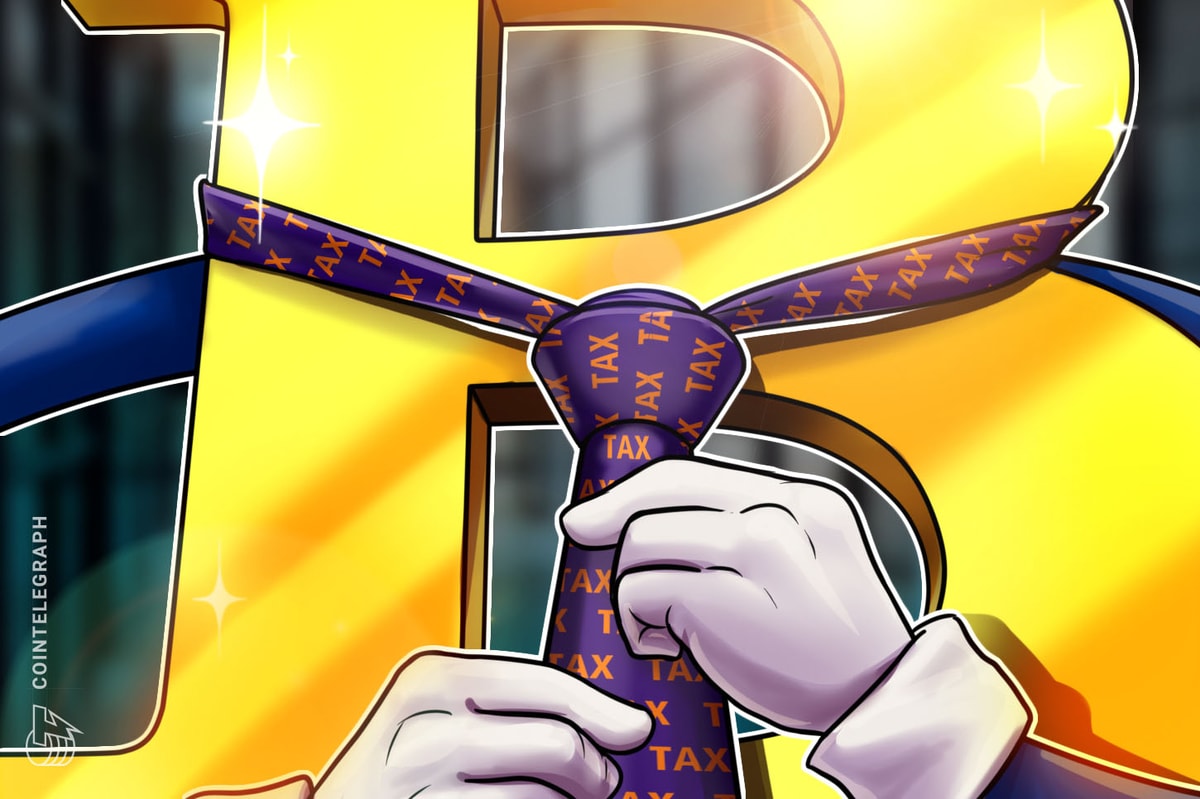These days, a perennial question doing the rounds in crypto circles is – Are nonfungible tokens (NFTs) legal in the United States? Regulatory bodies around the world, including the U.S. Securities and Exchange Commission (SEC), tend to view crypto assets as a security. In the near past, NFT rules and regulations often failed to distinguish between assets like cryptocurrencies, stablecoins and NFTs to the heartburn of crypto insiders, painting chalk and cheese with the same brush.
Of late though, regulators’ understanding of various crypto assets has been steadily increasing. Some high-ticket transactions such as the sale of the digital art “Everyday's — The First 5000 Days” for a whopping $69 million and the first-ever tweet by Jack Dorsey getting auctioned for a mind-boggling $2.9 million made regulatory bodies notice them.
Let us glance at what NFTs are and then we will move on to examine the question – “Are NFTs regulated in the USA?” – and throw some light on the U.S. government’s stance on NFTs. We will take into account what financial experts say about NFTs as it eventually has a bearing on the authorities’ take on the matter.
In the light of the information available, we will also determine if it is illegal to buy an NFT in America.
NFT rules and regulations
Definitions of digital assets
The SEC defines a digital asset as “an asset that is issued and transferred using distributed ledger or blockchain technology.” Though the security laws in the United States do not explicitly define digital assets, these may be deemed “digital asset securities” in certain circumstances.
The U.S. Treasury Financial Crimes Enforcement Network (FINCEN), the U.S. Commodities Futures Trading Commission (CFTC), and the Internal Revenue Service (IRS) have also been exploring ways to keep a watch on NFT transactions.
What makes drawing up rules and regulations on NFTs so challenging
For regulators, drawing regulations for nonfungible tokens has always been challenging. Simply ask can the IRS track NFTs and the answer will probably be in the negative.
An example will help you to better understand why regulators like the FINCEN and the CFTE struggle to find differences between NFTs and other digital assets. Let us take three cases of different types of crypto assets that have the same value in fiat.

A regulatory body might find it hard to distinguish between the three types of assets. To set aside trouble, they might want to create an equal set of rules for all these assets.
There are some use cases where NFTs don’t need to be regulated at all. For instance, some NFTs might be just like trading cards. Trying to regulate them wouldl be like putting curbs on the playing cards. This is what makes legal issues around NFTs so complex.
NFT legal issues – are NFTs considered securities?
The legal definition of a security
As per Section 2(a)(1) of the Securities Act, a “security” is “any note, stock, … in any profit-sharing agreement, collateral-trust certificate, preorganization certificate of subscription, transferable share, investment contract, … or, in general, any interest or instrument commonly known as a ‘security.’”
The SEC’s mandate
The United States Congress has granted the SEC the mandate to regulate a range of products as securities, including NFTs. When examining NFT legal issues, the law expects courts to take into account the economic reality behind a product and not the form.
Exceptions
An NFT should not be deemed a security if it relates to an existing asset and is presented as a collectible with a public assurance of authenticity on the decentralized ledger. However, if an NFT has been marketed as an asset that will give a return on investment due to the efforts made by others, it is a security.
There is an exception though. If the price appreciation can be attributed solely to external market factors, such as inflation, the NFT is not regarded as security.
Fractionalized NFTs could be regarded as securities, while NFT platforms facilitating the sale and secondary trade of the asset may need to register with the SEC as a broker-dealer/exchange/alternative trading system. An alternative trading system is a loosely regulated trading venue that matches buyers and sellers for transactions.
NFT rules and regulations: Howey test
The SEC v. W.J. Howey Co. case in the U.S. Supreme Court put in place a test — “the Howey Test” — to determine what constitutes an investment contract. The Howey Test is a major criterion reflecting the U.S. government’s stance on NFTs.
The Howey Test, now a major factor in all NFT legal issues, regards an investment contract to be a contract, transaction, or scheme if it involves:

The main criteria while analyzing digital assets is whether a buyer reasonably expects financial returns from the efforts made by others, whether they are selling at a gain in a secondary market, participating in distributions, or other such actions.
NFT rules and regulations – Regarding money transmission with NFTs
Since 2011, FINCEN has been regulating money services business (MSB) models involving digital currencies. The regulatory body defines “digital currency” as a “medium of exchange that can operate like a currency but does not have all the attributes of real currency, including legal tender status.” They regard convertible virtual currencies (CVCs) as units that substitute for real currency.
A nonfungible token’s functionality as a virtual currency will determine its status as a CVC. Most NFTs just digitally represent a unique, underlying asset, so they are likely to be deemed a digital collectible and not a CVC.
However, as NFTs can also be redeemed for fiat, it makes a case for these to be considered as value substituting currency. Laws regulating money transmitters vary from state to state.
If NFTs are regarded as engaged in money transmission activities, FINCEN may consider them to be subject to Bank Secrecy Act (BSA) regulations.
Are NFTs commodities?
According to the CFTC, the definition of a commodity includes cryptocurrencies, along with emission allowances, renewable energy credits and other intangible items.
Regulations regarding deceptive and manipulative trading may be applied to NFT transactions on a spot basis, referring to unleveraged, fully-funded transactions.
In case an NFT is rolled out on a margin or leveraged basis, additional requirements could enter the equation. The CFTC may check if the NFT has been traded solely on a registered derivatives exchange. Moreover, the CFTC takes into account actual delivery for virtual assets used as a medium of exchange.
NFT intellectual property — transfer of rights during the sale
Usually, the seller of the NFT determines the rights accompanying an NFT. Metadata associated with an NFT tells about the corresponding assets to which the token is bound. NFT intellectual property rights regarding the underlying asset of an NFT are created by whoever owns the asset. The owner of the intellectual rights determines what rights to grant to the NFT buyer. These rights might include the right to use, copy, modify, and display the content.
When an issuer of an NFT intellectual property obtains content from a creator, the issuer only holds the specific rights granted to them by the creator and can license only the limited rights to the buyer. NFT transactions may involve issues such as proper licensing language and assignment.
Are NFTs subject to US money-laundering regulations?
FINCEN is yet to issue NFT-specific guidelines regarding money-laundering but there are BSA and FINCEN regulations regarding digital currencies and these could apply to NFTs as well. If an NFT is considered to be a substitute for currency, it could be considered subject to the BSA and FINCEN regulations.
Several NFTs, however, just represent digital ownership and this should keep them out from under FINCEN's oversight. Business activities such as the transfer, sale and custody of the NFTs are certain to have a bearing on the regulatory take regarding how these tokens are deemed.
Are NFTs subject to US sanctions?
Generally, most US sanctions are administered by The Office of Foreign Assets Controls (OFAC). Though OFAC hasn’t yet issued any NFT-related guidelines, they have stated the sanctions regime applies to digital transactions. Moreover, OFAC has worked to enforce sanctions regarding blockchain-based transactions.
OFAC could initiate action if the persons penalized by the sanctions benefit from activities related to NFTs, thus exposing the sanctions to risk. They have already identified NFTs as a possible factor in the possible violations.
The regulatory body has already pointed out issues involving artworks such as the possibility of anonymity, the role of intermediaries, subjective valuation and concealability. Anyone participating in NFT transactions needs to take into account the sanctions.
What are the cybersecurity concerns regarding NFTs?
A popular crypto asset, NFTs are already attracting criminals who are trying every trick possible to obtain the private key associated with an NFT to gain access to the token and move or sell it without authorization from the real owner. As stolen NFTs reside on immutable blockchains, getting the ownership back is never easy.
Users are always the target of brute force attacks, phishing attempts and other tactics designed by bad players. NFT owners often ask — “Can you sue someone for using your NFT?”
The answer to the question hinges on several conditions such as if the NFT was related to original artwork of the claimant, the documents they could produce in support of their answer, and such. An intellectual property lawyer will be able to take into account various factors and give a subtle reply.
NFT enterprises need to put in place technical, administrative and physical safeguards to throttle such attacks. These include measures to better protect account access credentials and need-based access controls.
The road ahead
Congressional committees and government agencies are still trying to come to terms with how digital assets, NFTs in particular, will affect the global and domestic economy. The regulatory approach has been hanging between a blanket ban or harsh restrictions and requiring crypto enterprises to adhere to the same reporting standards as banks or brokerages.
From a regulatory standpoint, framing NFT rules and regulations is a different ballgame than regulating fungible tokens as the use cases NFTs might fit into are always hard to pinpoint. To assume NFT regulation is around the corner would still be a far-fetched idea. It might take some time before regulations in America catch up to the developments in the domain.











